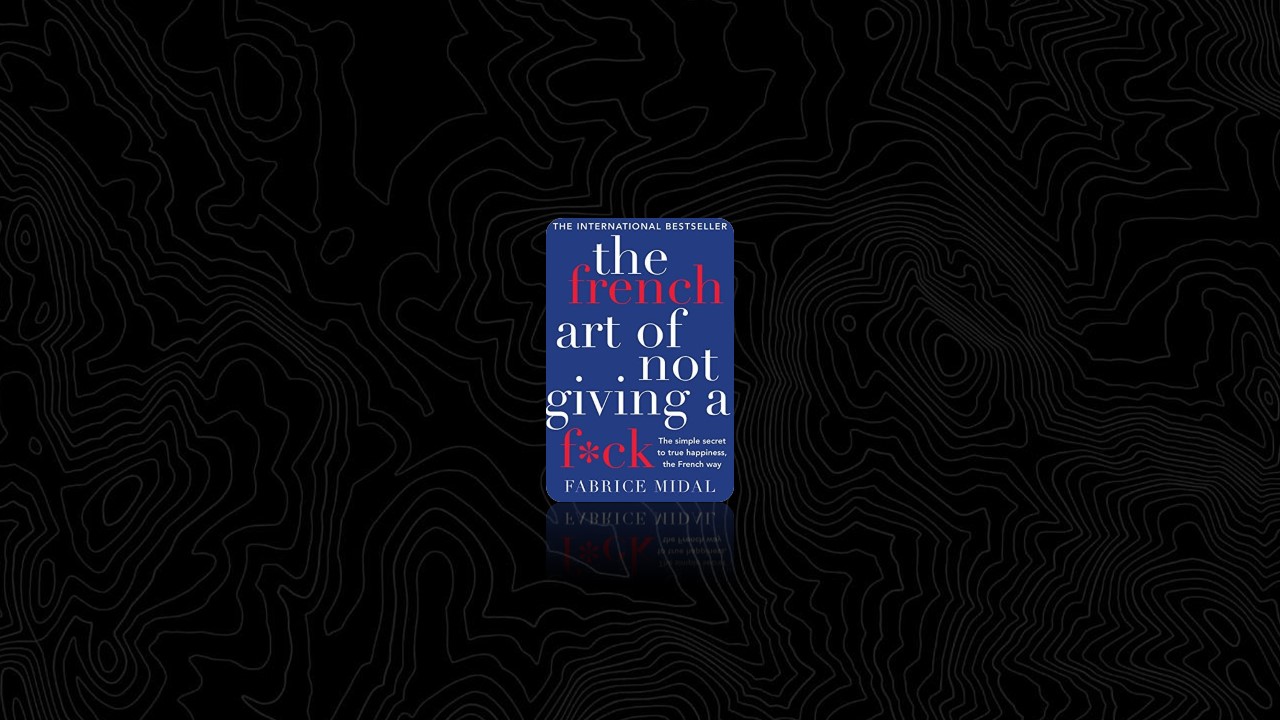FUCK MEDITATING
Stop meditating…and breathe. Breathing is a natural action that requires no effort. But at the same time, it is an extraordinary phenomenon, the very act of life. Simply by giving myself a break and by breathing, I am alive! Meditating is similar. It is a natural act that allows me to let life return, and through which I become alive once again. It is above all an action that can be adopted at any time, an action that consists of a kind of attention and benevolence, beyond any judgement. Am I sad, or annoyed? Then I stare my sadness or annoyance in the face…and then I stop giving a fuck. Meditation is a form of breathing without guidelines or sanctions. And therein lies its healing power. Breathing means becoming resynchronised with life. Meditating means not giving a fuck and allowing ourselves to become human once again.
FUCK BEING WISE
A form of peace lies at the end of this journey. But only if we don’t turn the journey into a new way of brutalising ourselves! That is the crux of the story. In the name of wisdom, we torture ourselves and become ever more inauthentic. As we obviously fail to become bland, calm, detached, and impassible, we pretend to be so. In reality, we accept a path of confusion and disorientation.
The omnipresent order to become wise blinds us to the suffering of the world, the isolation lurking around the corner, everything that is wrong with our planet. It makes us forget the present and aspire to a distant tranquillity. It stops us from connecting with the here and now. It harnesses the cart before the horse. What genuine tranquillity can I aspire to if I have forgotten to live, and have instead shut myself in an ivory tower?
So, learn to give yourself a break, and liberate the enthusiasm within you, without ever being ashamed of it. It’s proof that you’re alive!
FUCK BEING CALM
True peace is something we can discover at the very heart of our anxiety; it isn’t isolated from emotions, passion, or insecurity. Peace does not arise from a total control over who we are, but instead from the transformation of one’s reality. For instance, take a sick child who has a fever and is in pain. When he moans, his mother holds his hand. She loves him. The child’s suffering doesn’t go away, but it is transformed. He’s still in pain, but he feels love and support. His space opens out into something other than sickness, something even stronger. The illness is still there of course, but it has now become something else. He now feels safe.
Meditation as I understand, practise, and transmit it, is a way to reach this transmutation. It does not wipe out emotions but transforms them, opening us up to benevolence, or a form of peace. It takes us towards a different relationship with the small and larger problems of everyday life. Peace of this kind does not wipe out our issues or bypass them. It is another way of perceiving them and, above all, of engaging with them, whenever they occur. Meditation as I understand it is a path towards exaltation, passion, and action.
FUCK HOLDING YOURSELF BACK
Discovering the meaning of desire in this way frees us from the moralising, guilt-inducing command to be less selfish and more altruistic. No, just take the time to listen to what is calling to you, and spontaneously, you will emerge from yourself, be attentive to others, and become engaged. Ask yourself, quite simply, what you want. Someone who becomes involved in an association to help combat violence against women or to aid the illiterate doesn’t do so from some altruistic sense of duty, but because it appeals to them, speaks to them, makes them feel more alive and happier.
Stay free. That is the great lesson of desire: It tells us gently and softly to open up even more so that our world becomes increasingly livable. Stop holding yourself back, and desire away.
FUCK WANTING TO BE PERFECT
Perfectionism has an extreme and frightening side, called fundamentalism. Fundamentalists torture, sever, and destroy themselves while also destroying others, in order to live out what they call their faith in a way that seems absolutely perfect (according to their own criteria). Yet, whatever they do, however far they go, they never feel reassured, and endlessly feel the need to take it one step further. But this will never suffice: The more thresholds they cross, the worse they feel, and the more they need to pursue their growing folly while never deriving the slightest happiness from it. Such is the craziest rationale about the will to be perfect. This extreme example illustrates why perfectionists will never be perfect enough in their own eyes and too often spend their entire lives tormenting themselves in vain.
Don’t take this path; instead, make peace with your distress and difficulties. In the meditation seminars I run, one of the most important points for me is to show the participants that what bothers them, or scares them, the things they’d like to eliminate from themselves, may, in fact, be positives.
FUCK TRYING TO UNDERSTAND EVERYTHING
This solution doesn’t make much sense for the twenty-first century: Our world is constantly changing. Today’s training will be out of date tomorrow, when other skills and abilities will be required—skills that will be far easier to acquire if we’ve been brought up to be resilient, adapt, and adopt new paradigms. What’s the point of reading a book like Homer’s Odyssey? To help us be more human behind a ticket office window, more competent when managing a team, or more effective in moving from one software program to another. To be more aware of the complexity of a situation and its ramifications. In sum, to be creative, whether professionally or personally, or even simply when putting together a meal. Wittgenstein, the Viennese philosopher, thought that philosophical investigations were an ‘unsurpassable source of paradigms for learning something new about the world’.
So are we ready to abandon our resistance to change and learn something new? Are we ready to be constantly disoriented, the better to take the leap? There lies the whole question of creativity
FUCK COMPARING
Deep down, we envy those who dare to break free from the mold, but we hesitate before taking the plunge ourselves, because we’re afraid, irrationally, of being rejected, ending up alone and isolated from others. It’s the fear of not being accepted because we aren’t like everyone else—the fear of being different and of the unknowns we’ll face if we embrace those differences.
Being you is not an egocentric affirmation of individuality. Nor is it an affirmation of your singularity, excluding all else. We are, as Aristotle pointed out, relational, political beings. Being yourself means discovering bonds, obligations, and commitments.
Real confidence is unconditional. It is a confidence in nothing, in my humanity, in the humanity in me that knows better than I do. A confidence in life, which will allow me to discover resources right at the heart of any given situation. It is a confidence far more radical than self-confidence. It is a state of mind that allows me to root my presence in the world. And, finally, to be.
FUCK WANTING TO LOVE
We too often use the word love without any benevolence involved. But love is often shown without being stated: This is benevolence. The word love has become so clichéd that it’s hard to use and gives rise to many misunderstandings. It even becomes terrorising. We repeat it all day long, until it conveys no real meaning. On the other hand, we hold it back when it begins to well up inside us. Then we see it as a pair of handcuffs; we fear it’s not actually true, that we’re being played for a fool, that we’re being rejected, or stifled. Deep down, the relationships that don’t immediately bring to mind the word love
are sometimes the most loving in the real sense of the term. Those are the people who are truly delighted that we are like we are, and they want us to remain the people we’re meant to be.
Let’s stop wanting to love and stop forcing ourselves to say ‘I love you’ artificially, conditionally, or conventionally. Let’s be benevolent. That is how love begins—when we feel we can really be ourselves, when we discover that we are more like ourselves when we’re with this other person, and we want that person as he or she is. When we wake up to a new relationship with life. When we can let it be.


